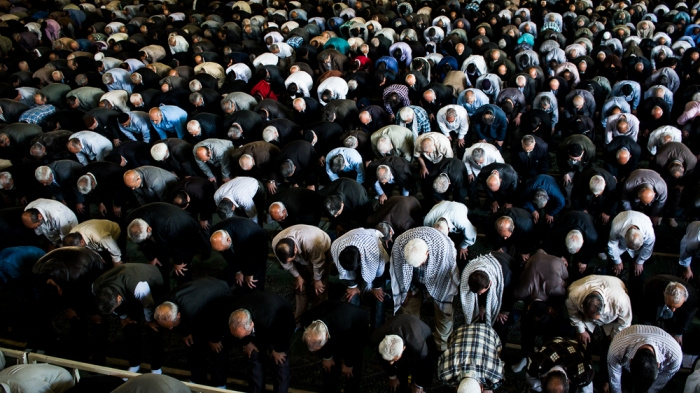Iran’s Friday Prayers: Criticism of the government in full force

This week, Friday prayers acro7ss major cities in Iran turned into a platform for the Principlists to voice their criticism against the government. The nuclear deal and cultural policies were the key themes of sermons across the country on April 22.
In Tehran, key Principlist MP Alireza Zakani served as the pre-sermon speaker of Friday prayers. Zakani, an ardent critic of the nuclear deal between Iran and P5+1, argued that the Joint Comprehensive Plan of Action, the JCPOA, has borne no fruit for Iran so far, even frustrating the government officials. Zakani reminded the congregation that even after clinching the nuclear deal, the US has continued with its habit of threatening Iran. He added that despite the agreement, Iran is still facing difficulties in its financial transactions and relations with the international banking system have not returned to the pre-sanctions era. "The situation has become more difficult for us than the time before the JCPOA" he said.
In Qom, Ayatollah Mohammad Saeidi also expressed concerns about the outcome of the nuclear deal. "Ninety days have passed since [adoption of] the JCPOA and Obama and Kerry have confessed that Iran has fulfilled all its promises, but West's promises are still on paper," and unrealized he said. "JCPOA inflicted a heavy price on nezam [the establishment] and we still have not taken advantage of it."
As the warm season approaches, and with the controversial plan by the Iranian police to run a division of undercover morality police, Ayatollah Movahhedi Kermani in Tehran strongly spoke against liberal cultural policies.
Calling for observance of Islamic dress code in summer, Movahhedi Kermani backed police's decision to dispatch undercover forces into the streets of Tehran, warning all "promiscuous" individuals that their "hideous plots are monitored by the police in a respectable, valuable manner." "Some say people are free; we also say people are free, but this freedom has limits" he added. "Freedom that degrades the establishment … is prohibited."
In Mashhad, Ayatollah Ahmad Alamolhoda, a staunch critic of the current trend of hijab among Iranian women, backed the police's initiative of undercover morality watch. Alamolhoda called establishment of societal security an institutional responsibility of the police forces. He also criticized some officials, including the president, for objecting the plan and "endorsing corruption".
"Who are you trying to attract with such remarks?" he said.
Back in Tehran, Friday prayers' leader also expressed concern about the upcoming annual book fair in Tehran. Calling for the necessity to monitor the content of books displayed in the fair, Movahhedi Kermani warned that "books from all countries pour into this exhibition and in this way they inject their culture into our country."
"We don't want a book fair. Would that be a problem?" he said.
The aftermath of the Organization of Islamic Cooperation's Istanbul summit, where Saudi Arabia's diplomatic attempts led to condemnation of Iran and Hezbollah, was felt also in this week's Friday prayers. Tehran's Friday prayers' imam Movahhedi Kermani did not exempt Riyadh from his tirade. "Beware! You should await your glass palace that is [fragile like] a spider web to collapse. You are wearing the United States' collar of servitude," he said. Also in Gorgan, Ayatollah Nourmofidi, one of the handful of Friday prayers' leaders with a bent towards the Reformists, strongly criticized the organization and some of its "servile" members. "Iran stood against conspiracies of colonialism and revived the Islamic identity, but members of the organization issue statements against Iran, while remaining silent against the massacre of innocent people by some regional states," in reference to Saudi Arabia's war on Yemen.

